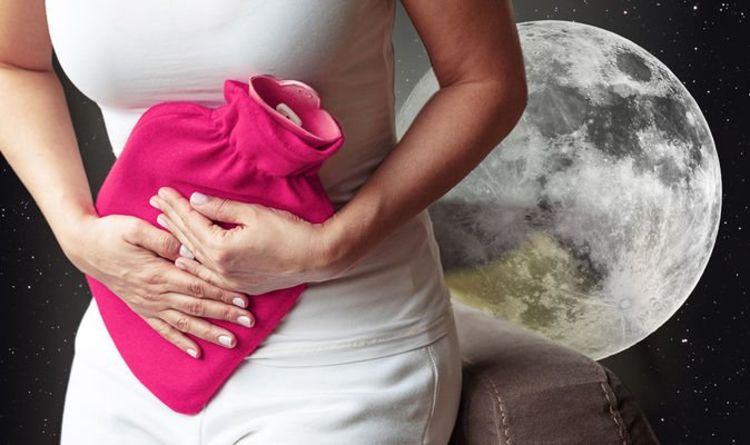
The Moon DOES Affect Our Bodies And Minds. Here's How.
Share
Before you start chasing us with pitchforks and flaming tiki torches from bunnings, we aren't in the backyard howling or burying crystals at the beach under the full moon.
But, there is scientific evidence that the moon affects us in a few major ways. And we repeat, we're not getting into some bogus spiritual stuff here. It's entirely scientific.
Two new studies have found that people go to bed later and get fewer hours of sleep during a full moon. Plus, even stranger, menstrual cycles seem to temporarily synchronize with the event.
Human history is littered with folklore of the changing skies and how it dictates and represents the lives of those beneath it. Especially the changing of the moon. From werewolves to plain old "what sort of mood will I wake up with" has been blamed on the moon and it's reflection of the sun.
But, funnily enough, there are roots if scientific truth to these.
How The Moon Affects Our Sleep

One study published on the 27th, January, showed how sleep cycles change with the lunar cycle. A team of scientists from the University of Washington, the National University of Quilmes in Argentina and Yale University found in the days leading up to a full moon, people tended to ditch their regular bedtime for a kater one and clocked less hours of sleep as a result.
How?
The team used two entirely different groups to compare the differences of their sleep schedule. One a group of college students in the city of Seattle, Washington, and another made of indigenous communities in northern Argentina. Two different environments with a variety of artificial light that might influence the participants sleep.
They studied 98 indigenous people in three Toba-Qom indigenous communities in Formosa, Argentina and used sleep data from 464 college students in the Seattle area - which was collected from a previous study.
Their findings proved that without the influence of artificial light, there is a connection between the full moon and poorer sleep in general.
"We see a clear lunar modulation of sleep, with sleep decreasing and a later onset of sleep in the days preceding a full moon," lead author Horacio de la Iglesia, a professor of biology at the University of Washington, said in a statement. "And although the effect is more robust in communities without access to electricity, the effect is present in communities with electricity, including undergraduates at the University of Washington."
You might think that the night of the full moon is the pinnacle of sleep deprivation. However, this was found to be false.
People slept the least and went to bed latest on nights leading up to the full moon. These nights are also when there is more light in the sky as the waxing moon becomes brighter.
"We hypothesize that the patterns we observed are an innate adaptation that allowed our ancestors to take advantage of this natural source of evening light that occurred at a specific time during the lunar cycle," study author Leandro Casiraghi, a University of Washington postdoctoral researcher in the biology department.
How The Moon Affects Our Menstrual Cycles

Our precious sleep isn't the only human function the moon will meddle with. Which is not a new concept and has now gained scientific backing, despite how strange it sounds.
Since we lived under the starry sky without roofing, female bodies have connected with the moon. In fact, The word "menstruation" is etymologically related to "moon". The terms "menstruation" is comes from the Latin "mensis" (month). This relates to the Greek "mene" (moon) and finally to the English words month and moon.
It is believed that when we lived our entire lives outside and free from any artificial light, women all shared the same menstrual cycle as it was dictated by a connection with the moon.
A recent study published in Science Advances found that while not all the historic myths of our menstrual connection are true, some have strong validity.
The team analysed the menstrual cycles of 22 women up to 32 years. The long-term data on the cycle of menstrual onset was examined with most averaging 15 years including women under and over the age of 35 years. They compared this data with changes in lunar cycles to see if there was a link.
Of the women who participated, those whose menstrual cycles lasted longer than 27 days showed "intermittently synchronized with cycles that affect the intensity of moonlight," the study reads. As the women grew older, the connection with the moon became weakened as they were exposed more to artificial light.
More specifically, they concluded that "menstrual cycles also aligned with the tropical month (the 27.32 days it takes the moon to pass twice through the same equinox point) 13.1% of the time in women 35 years and younger and 17.7% of the time in women over 35. This means that menstruation is also affected by shifts in the moon’s gravimetric forces," according to the study.
How? Why?

We don't explicitly know, yet.
But, the world’s first period astrologer Priscila Gonsalez, (who we must stress is not a scientist) believes “All living creatures have internal biological clocks that allow them to adjust their activities to changing environmental conditions. The lunar cycle has an impact on human reproduction, in particular fertility, menstruation, and birth rate.”
“Syncing your menstrual cycle with the Moon has been impacted by the introduction of the pill, electricity, computers and mobile phones that have managed to unplug us from our direct connection to the phases of the Moon and to the nature of our own bodies,” she said.
On top of these modern inventions, everyone’s body is unique.
"Everyone’s body is different and our menstrual cycle can suffer the influence of many things such as our stress levels, the environment and endocrine activity of each individual."
She said a lot more but it gets very "woo" and the confirmation bias is strong with this one...
Do you or your Mrs feel a difference with the moon?
Let us know in comments and share with a friend for a convo starter!
Thanks for reading with us and helping thrust Australia into the deep unknown.
#Space_Aus
Speaking of supporting Australia...




